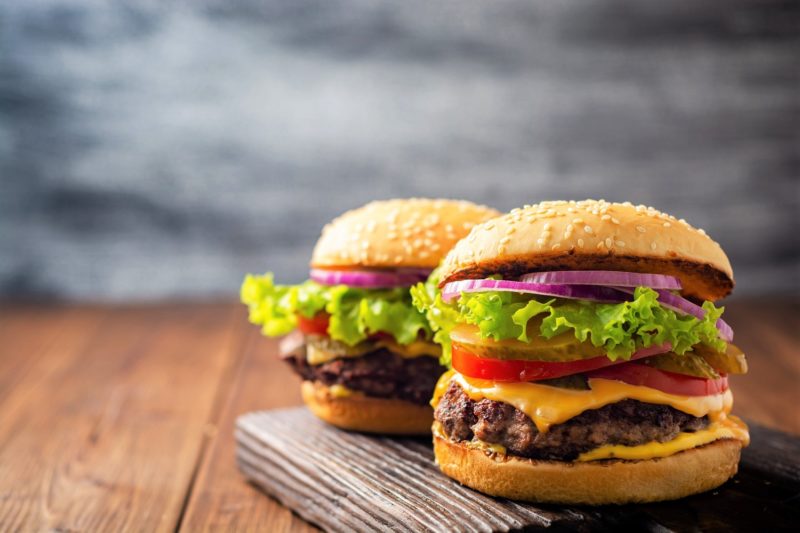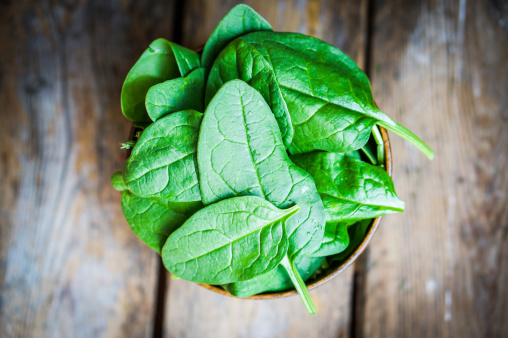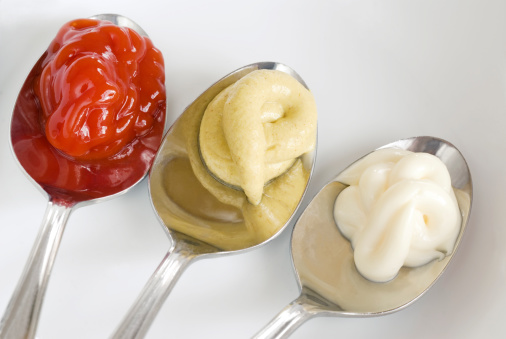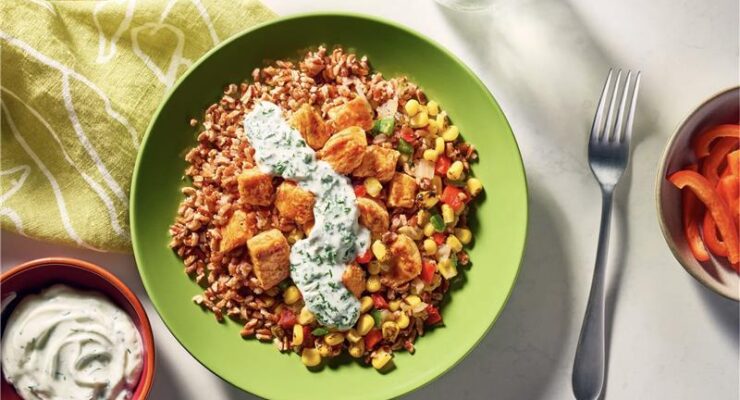How to Build a Better Burger in 5 Easy Steps
Article posted in: Diet & Nutrition
Yes, a healthy burger can exist. Forget apple pie. There’s nothing more American than a burger—Americans eat nearly 50 billion of them every year, so the thought of a summer barbecue without one feels like heresy.
If you’re trying to lose weight, you don’t have to skip that juicy, grilled patty at your next barbecue because, with a few tweaks (that don’t sacrifice flavor and actually make it more filling), you can make a healthy burger. There are some easy ways to make your burger better for your heart and your waist.
Follow these five tips to cook up a healthy burger:
1. Start with a properly portioned patty.

We’re all accustomed to quarter-pounders, but a proper portion of beef is far from it. On Nutrisystem, a PowerFuel serving is two ounces of cooked lean beef. Chances are, if you’re eyeballing the portions when making patties, you’ll overserve yourself: A study, published in Nature, found that people correctly guessed the amount of food in a portion only about half the time, and they usually erred on the side of eating too much.
No scale handy? No problem: There are plenty of ways to visualize proper portion sizes. One serving of ground beef is about as big as two-thirds of a deck of cards. Click here for even easy ways to perfect your portions without measuring >
2. Make it filling: Load up the veggies.

A burger with lettuce, tomato, pickles and a big slice of onion is a bigger, fancier treat than one with just a squirt of ketchup and mustard—and it can also make it more filling. Those vegetables add volume to what you’re eating with minimal calories and a little bit of fiber to help slow digestion. You will most likely feel fuller faster, and stay feeling full longer.
To add even more volume and fiber to your meal, fill up the rest of your plate with veggies. Because you can have endless servings of them on program, and they serve up so many beneficial nutrients, there’s really no harm in it. A heaping salad or a pile of crunchy raw pepper slices will keep you munching longer, so you’ll have more time to start feeling full from your burger. After your patty, finish your whole, fiber-filled salad and wait 10 minutes—you’ll probably feel full enough to not want a second burger, and get right back to socializing.
3. Lower the calories: Switch to turkey and stuff it with greens.

Super-lean ground beef sounds great in theory, but it can make for a dry burger. Lean out and keep the juice by switching to turkey: A three-ounce ground turkey patty has approximately 166 calories, compared to 235 for a similar sized patty of 70 percent lean ground beef. You can even try brand new flavors with turkey, experimenting with new recipes like The Leaf’s gooey, mozzarella-topped Caprese Turkey Burger.
Incorporating leafy greens right into the meat prior to cooking also adds flavor, juiciness, nutrients and, best of all, plumpness to your patty. Chopped spinach and other leafy greens provide Vitamin A and antioxidants that may help ward off inflammation and cancer. The best part: Greens are so low in calories that the boost in your patty’s size means more food without many more calories.
4. Watch the salt: Swap in low-sodium condiments.

The average American eats 3,400 mg of sodium per day—the American Heart Association recommends no more than 2,300. And, 75 percent of the sodium we consume comes from processed foods … like ketchup and mustard.
This one is a painless fix: Low-sodium ketchup tastes just as good as the regular stuff, and has less than one-third the sodium in each tablespoon. Another easy, low-sodium switch is changing up your cheese. Swap out full-fat, full-sodium slices for low-fat, low-sodium options. You probably won’t notice the difference. Most Americans need to cut 1,000 mg of sodium daily to keep their blood pressure in check, and these switches will definitely make accomplishing this goal easier. A less salty burger is a healthy burger and a healthy burger can mean a much healthier you.
5. Get maximum satisfaction: Sit down to eat it.

If you’re distracted from your meal, you’ll need more taste sensations—like saltiness, sweetness and juiciness—to feel satisfied … meaning you could wind up eating more. A Dutch study found that participants had a harder time determining the sweetness of a sugary beverage when they were also trying to concentrate on a mental task.
Concentrating on the act of eating as well as all of the flavors of food is called “mindful eating.” Lots of studies have shown such eating to increase weight loss success without focusing on calories because you’re more satisfied with the food you’re eating. An Ohio State study also found that three months of mindful eating helped diabetes patients lower their blood sugar.
You don’t have to be antisocial to do it either: Just grab a plate and sit down. Concentrate on what you’re eating, and enjoy it. Notice the flavors and textures of your burger, and savor each bite. Maybe engage in some dinner conversations about the amazing food. Once you’re finished, get back to the party, feeling more full and satisfied.








